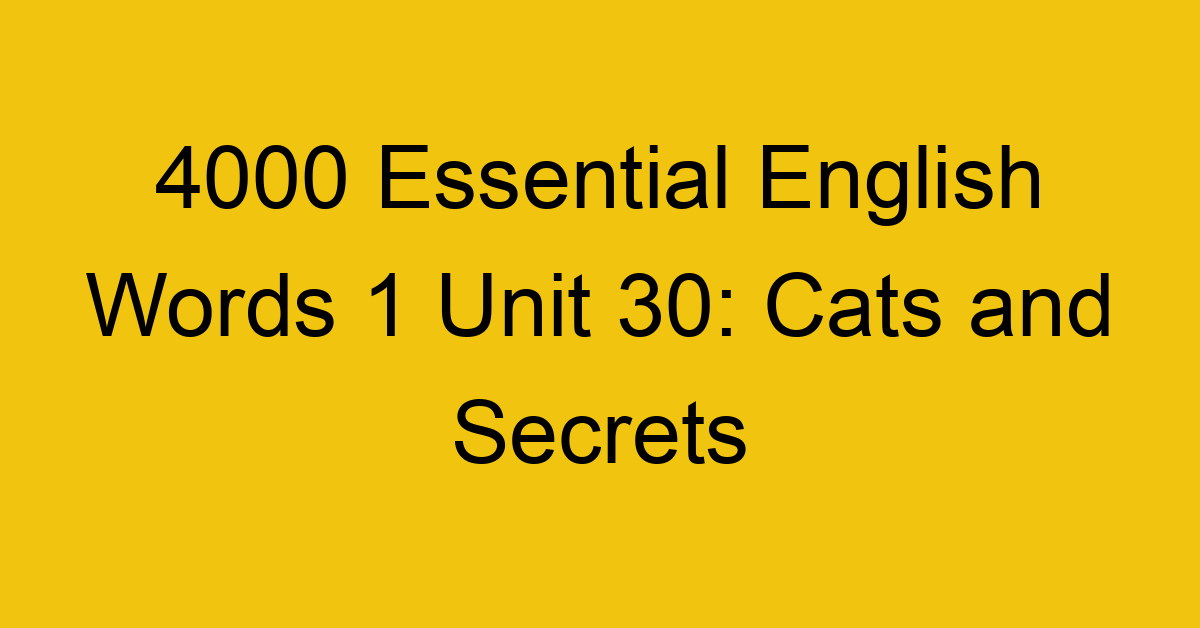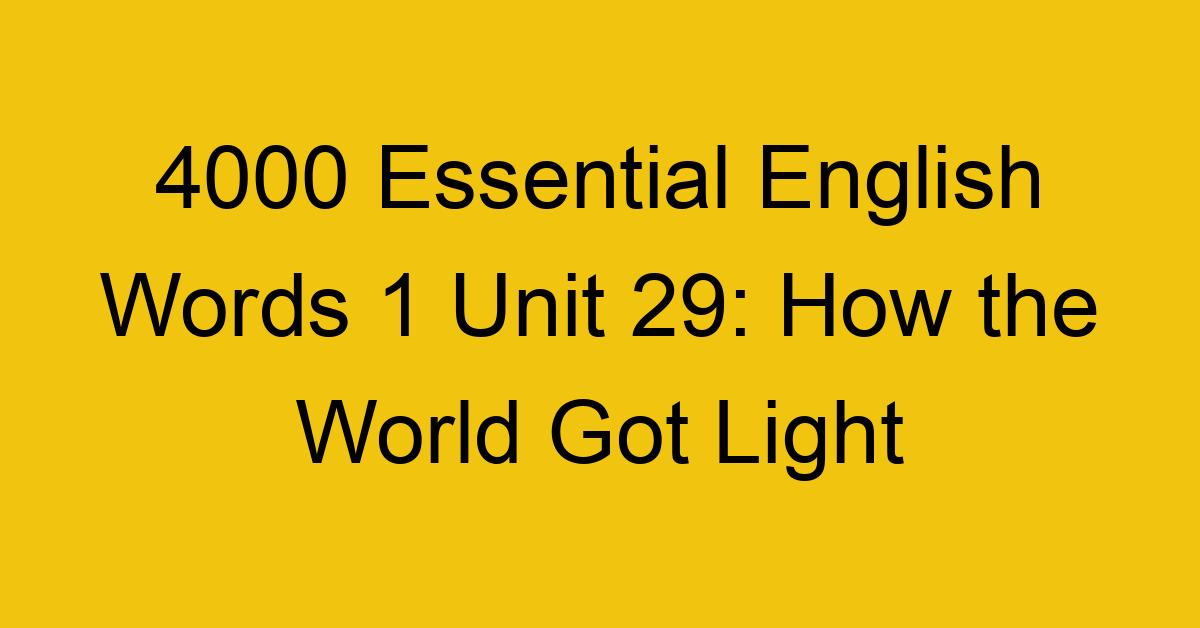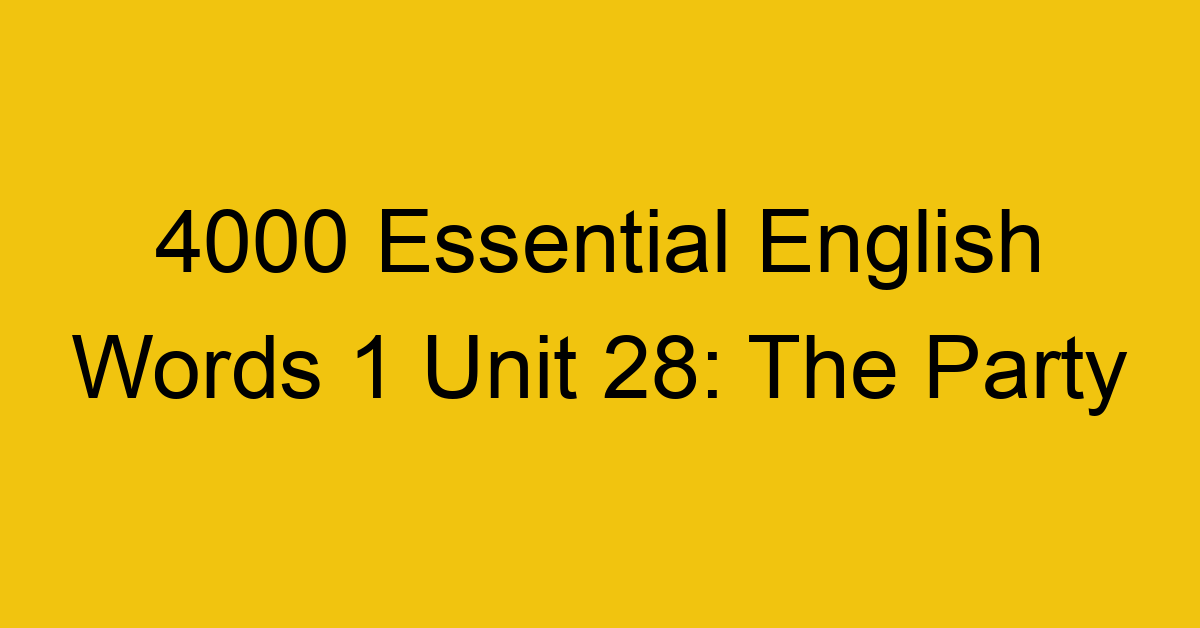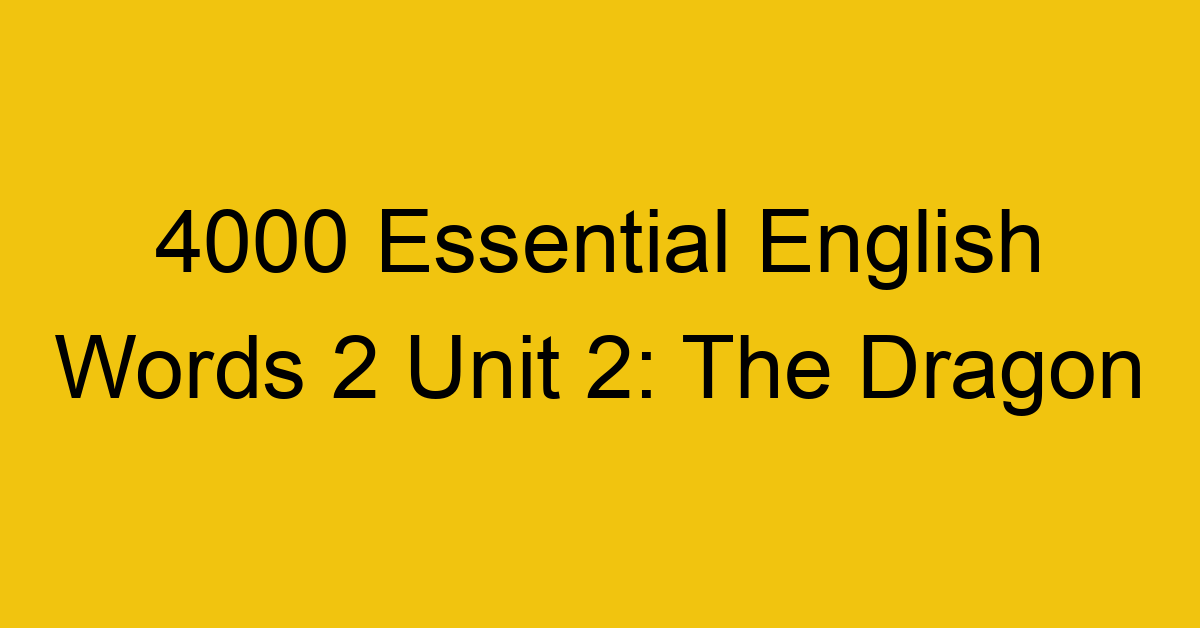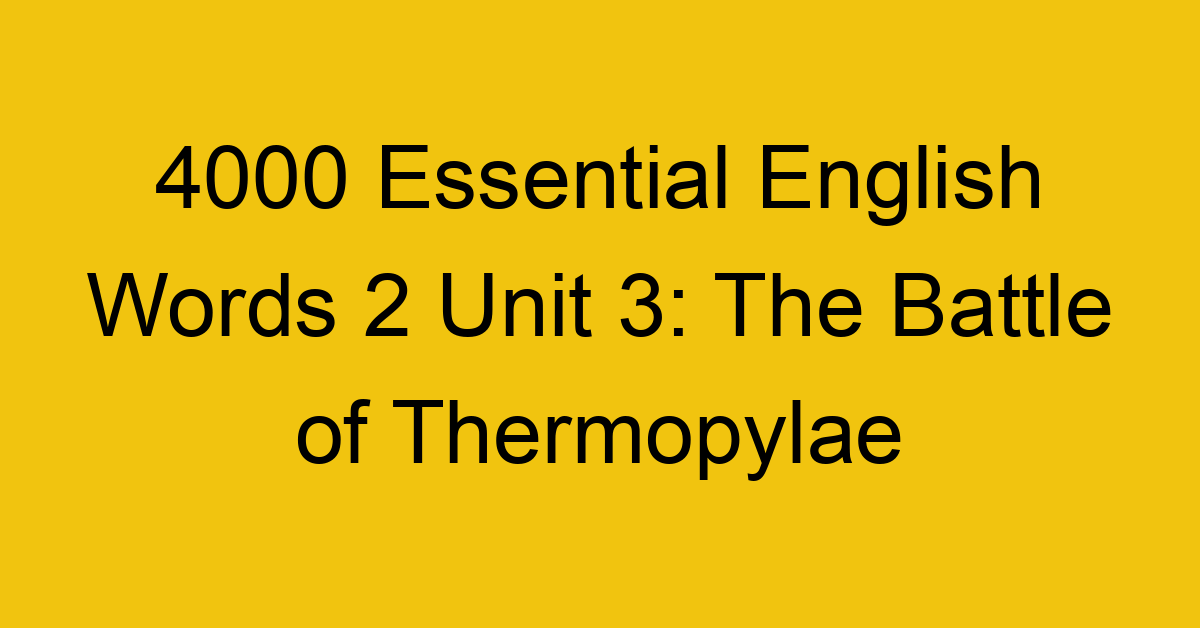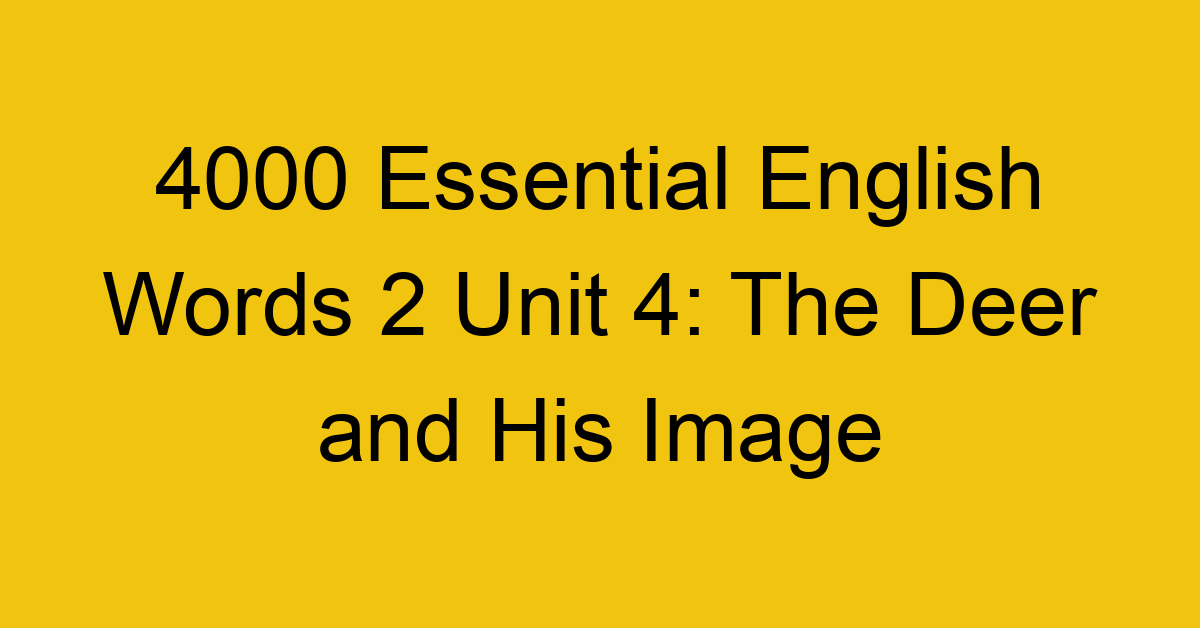4000 Essential English Words 2 Unit 1: The Twelve Months
Word List
- anxious [ˈӕŋkʃəs] adj.
When a person is anxious, they worry that something bad will happen.
→ She was anxious about not making her appointment on time.
- awful [ˈɔːfəl] adj.
When something is awful, it is very bad.
→ Her performance last night was awful.
- consist [kənˈsɪst] v.
To consist of is to be made of parts or things.
→ Today’s choices for lunch consisted of pizza, hamburgers, and hot dogs.
- desire [dɪˈzaɪər] v.
To desire is to want something.
→ My sister desires a big house and lots of money.
- eager [ˈiːɡər] adj.
When a person is eager about something, they are excited about it.
→ The man was eager to talk about the good news.
- household [ˈhaʊshəʊld] n.
A household is all the people who live in one house.
→ Our household is made up of my father, my mother and me.
- intent [ɪnˈtent] n.
An intent is a plan to do something.
→ Her intent is to visit Italy next summer.
- landscape [ˈlænskeɪp] n.
A landscape is how an area of land looks.
→ The landscape of the country is very green.
- lift [lɪft] v.
To lift something is to move it higher.
→ The man tried to lift the box.
- load [loud] v.
To load is to put objects into something.
→ The man loaded the boxes into a truck.
- lung [lʌŋ] n.
A lung is the organ in the body that fills with air when breathing.
→ Having strong lungs is necessary for a healthy life.
- motion [ˈməʊʃən] n.
A motion is a movement that someone makes.
→ The police officer made a motion with his hand.
- pace [ˈpeɪs] n.
The pace of something is the speed at which it happens.
→ I ran the race at a slower pace than my friend.
- polite [pəˈlaɪt] adj.
When someone is polite, they are acting in a thoughtful way.
→ The boy was very polite: he behaved very thoughtfully.
- possess [pəˈzes] v.
To possess something is to have it or own it.
→ My uncle possesses three sheep, a chicken, a cow and a dog.
- rapidly ˈræpɪdlɪ] adv.
When something happens rapidly, it happens very fast.
→ The train moved rapidly on the tracks.
- remark [rɪˈmɑːrk] v.
To remark is to say something.
→ The teacher remarked on how quickly the students were learning.
- seek [siːk] v.
To seek is to look for something.
→ If I have a problem, I seek my sister’s advice.
- shine [ʃaɪn] v.
To shine is to make a bright light.
→ The candles are shining in the dark room.
- spill [spɪl] v.
To spill is to have something fall out of its container.
→ I spilled the coffee on the table.

